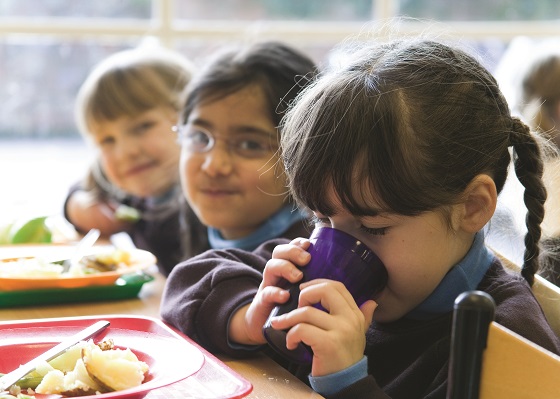Olivia graduated from University of Leeds with a BSc in Sport & Exercise Science followed by an MSc in Nutrition from Leeds Beckett University. She has over three years` experience working in the food industry with a focus on food allergies, infant & sports nutrition, and is a registered nutritionist. We caught up with Olivia in between some school visits to get some insights into working as nutritionist in the school food sector and to understand more about the food served in schools.
1. What are the benefits of having a school meal?
School meals have changed a lot "“ they`re tastier, healthier and a lot more fun. School meals offer a selection of freshly cooked main meals and desserts every day, with lots of variety which is a great way of introducing children to a wide range of foods. Most importantly, school meals now have to be compliant to national guidelines, called the School Food Standards, which set out how school meals should meet children`s nutritional needs. Research by the Children`s Food Trust also showed that children having a balanced meal at lunchtime have improved concentration and learning in the afternoon.
Don`t forget having school meals can also save parents valuable time, money and energy in preparing packed lunches!



